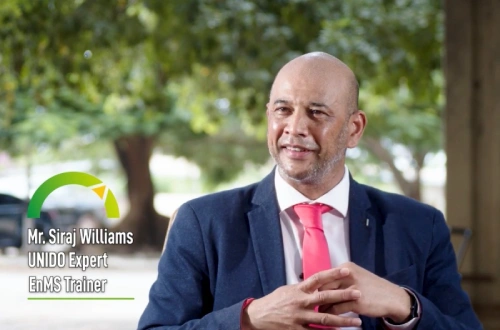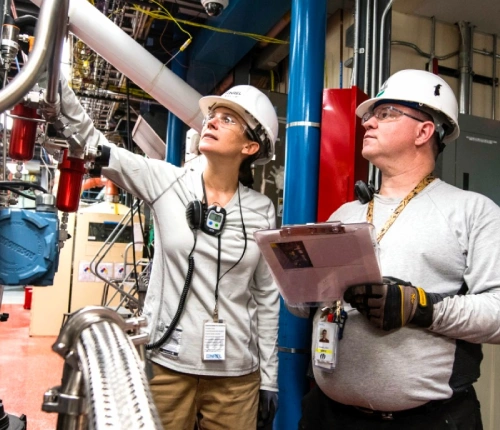Our approach
In country focus, inspiring global action
The Industrial Decarbonization Accelerator network has programmes in over 15 countries which are home to large and growing industrial sectors with huge energy efficiency potential and the willingness to embrace the massive growth of the renewable energy market.
Working in-country allows us to forge critical relationships with local governments and industry players. These partnerships enable our network to convene and build on existing work undertaken by various local and international organizations. We encourage collaboration across sectors, stakeholders and countries to improve knowledge sharing and collective impact.
With our special focus on small and medium enterprises, we ensure that industries of all sizes have the chance to meet international energy standards, cut running costs, access the finance, expertise and technology needed to shift away from fossil-fuels.
At a global level we share our collective experience with the world, showcasing best practice through stories of impact and knowledge resources.
Our services cut across our three areas of work

Training and know-how
Drawing on UNIDO’s decades of unparalleled technical expertise, the Accelerator delivers a tailored training curriculum to numerous cohorts of energy management practitioners, plant managers and auditors. This includes our widely successful ISO 50001 training programmes and numerous pilot projects which demonstrate the benefits of industrial energy efficiency. Training on the use of biomass and other renewable energy applications like biogas and solar systems are also delivered in countries like South Africa and Egypt.

Financing solutions
The Accelerator works with key government departments and local banks to help pinpoint and design policy instruments which can effectively mobilize finance and investment. Co-funded blended finance schemes like in Ukraine, tax breaks, financial sector training and project bundling are just some of the many ways governments can help to simultaneously incentivize and de-risk investments into industrial energy efficiency and renewable energy applications. Other initiatives include the provision of seed funding for entrepreneurs who are attempting to develop viable low carbon technologies to enhance the uptake of industrial energy efficiency.

Advocacy and policy support
The Accelerator’s local and international experts make policy recommendations, provide technical advice and facilitate multi-stakeholder dialogue among industries, energy service providers, policymakers and the financial sector. This support helps governments to develop and refine regulations and standards which can encourage faster uptake of industrial decarbonization measures. For example, in Turkey we work with the Government to strengthen existing incentives which are designed to accelerate the use of biomass as an energy resource.
At a global level the Accelerator is lobbying to ensure that industrial energy efficiency is a central part of the international climate and energy policy agenda. And we are advocating for green public procurement (GPP) to become a key policy tool to stimulate the demand for low carbon concrete and steel products and help decarbonize high emitting industries.

Tailored support to MSMEs & SMEs
Through a series of dedicated small business interventions, including specialized training initiatives and policy advocacy, the Accelerator aims to help industrial micro and small to medium enterprises (MSMEs) cut down on their energy use. Industrial energy efficiency in the MSME sector has the potential to unleash hidden economic potential which could help to trigger growth and job creation, not to mention a massive reduction in carbon emissions. Other efforts include working with governments to introduce energy efficiency labor competency standards specifically for industrial MSMEs.
Data systems and transparency
Digitalisation is a key part of generating better data, enabling advanced analytics and transparent reporting, and aiding more efficient energy consumption. The adoption of advanced analytics in industry results in efficient overall industrial processes, while also helping manage production costs, maximize energy performance and streamlining make environmental reporting more efficient. Better data and analytics drive optimized operational control, which has the potential to achieve a 25-40 per cent reduction in energy use without a large investment. Better data collection also provides a solid framework to attract investment and support in energy-efficiency technology upgrades systems from policymakers and industrial stakeholders.



